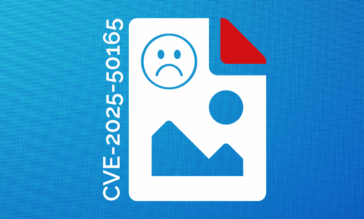How to Stay Ahead of Data Privacy Regulations in 4 Key Regions

Every region has its own rules for handling data. For executives responsible for compliance, this creates a patchwork challenge: the same customer file may pass through systems in Europe, North America, and Asia, each region enforcing different privacy standards. And organizations that fail to protect personal data in adherence to regulations? They face fines, lawsuits, and damaged consumer trust that can take years to rebuild.
The challenge is amplified by the sheer volume of unstructured data in motion, with emails, invoices, contracts, resumes, healthcare files, and customer documents moving across cloud apps, collaboration platforms, and vendor portals every second of every day.
Hidden inside these files may be PII (personal identifiable information), PHI (protected health information), and PCI (payment card data) such as Social Security numbers, medical records, or payment card details. This means the risk of data exposure doesn’t just come from potential cyberattacks, but in the everyday oversharing of sensitive information.
What are the Major Data Regulations by Region?
- Europe
- GDPR
- United States
- HIPAA and PCI-DSS
- California
- CCPA
- Japan
- APPI
Within each of these, we’ll examine how organizations can align compliance with operational efficiency.
Europe: GDPR and Data Protection by Design
The General Data Protection Regulation (GDPR) sets one of the highest global bars for privacy. It requires organizations to minimize the amount of personal data they collect, control who can access it, and prove compliance through auditable records. GDPR fines can reach €20 million or 4% of global revenue, whichever is higher.
The regulation emphasizes “data protection by design and by default.” That means privacy isn’t something to add after a breach. It must be built into every workflow. Files carrying personal identifiers like names, addresses, or payment details are a particular concern because they move across departments and systems daily.
To comply with GDPR, organizations need automated ways to mask sensitive information, sanitize metadata, and log every file interaction for potential audits.
United States: HIPAA and PCI-DSS
In the U.S., data privacy rules vary by sector. Healthcare providers and insurers must comply with the Health Insurance Portability and Accountability Act (HIPAA), which requires strict controls over PHI. HIPAA violations can bring fines up to $1.5 million annually, along with corrective action plans that drain resources.
Retailers and financial firms must follow the Payment Card Industry Data Security Standard (PCI-DSS), which governs the handling of payment card data. Compliance demands encryption, masking, strict access controls, and assurance that sensitive data won’t leak through files shared with vendors or stored in cloud systems. Because PCI-DSS is enforced globally by the card brands, it applies to any organization that processes payment data, not just those based in the U.S..
California: CCPA
The California Consumer Privacy Act (CCPA) gives consumers broad rights to know how their data is used, request deletion, and opt out of data sales. This means businesses must be able to identify personal data within their systems and ensure it isn’t exposed during routine operations.
CCPA penalties may not be as high as GDPR, but the reputational risks are significant. Failing to properly manage personal data can erode trust in one of the largest consumer markets in the world. Companies operating in multiple states often adopt CCPA-like controls across the board to simplify compliance and prepare for similar laws spreading across the U.S..
Japan: APPI
Japan’s Act on the Protection of Personal Information (APPI) applies to both domestic and international businesses handling Japanese residents’ data. The law requires explicit consent for data use, mandates reporting of breaches, and restricts cross-border transfers unless protections are guaranteed.
APPI aligns closely with GDPR in its protections, and the EU has recognized Japan as providing “adequate” safeguards. For global businesses, this means that compliance with GDPR frameworks can provide a strong foundation for APPI compliance, but it’s still necessary to localize practices, including data masking and logging, at the file level.
The Compliance Challenge: Files in Motion
Across these regulations, one common thread emerges: the need to protect sensitive data as it moves. Databases can be encrypted and access-controlled, but files flow freely uploaded to portals, shared through collaboration tools, emailed to customers, or stored in cloud drives.
Traditional security tools struggle here:
- Data Loss Protection (DLP) systems will block files, often frustrating employees with false positives and rigid rules.
- Data Security Posture Management (DSPM) tools provide visibility into where sensitive data lives, but they don’t act in real time as files move.
- Antivirus (AV) and Endpoint Detection & Response (EDR) focus on malware, not privacy risks. Plus, AV is rife with gaps and EDR is a reactive solution that requires manual mitigation after damage has already occurred.
Where Votiro’s Ability to Mask Data In-Motion Fits In
Votiro’s Active Data Masking solution delivers automated privacy capabilities, giving organizations the ability to:
- Protect sensitive data in motion with dynamic masking of PII, PHI, and PCI details.
- Maintain compliance effortlessly by logging every file interaction, creating a ready-made audit trail for GDPR, HIPAA, PCI-DSS, and other regulations.
- View in-depth analytics that allow security teams to monitor commonly-attacked endpoints, users sharing the most sensitive data, and more.
- Use fine-grain security controls that allow organizations to specify unique actions based on their needs, also known as Privacy Playbooks.
Get Data Compliance That Builds Trust
The stakes for privacy compliance are rising. Regulators are raising fines, consumers are demanding more transparency, and attackers are exploiting every gap they can find. But compliance doesn’t have to come at the cost of speed or collaboration. With Votiro as a foundation, organizations can protect sensitive data, stay compliant in multiple regions, and keep business flowing.
Ready to simplify global compliance and protect sensitive data without slowing business? Book a demo to see Votiro in action.
News you can use
Stay up-to-date on the latest industry news and get all the insights you need to navigate the cybersecurity world like a pro. It's as easy as using that form to the right. No catch. Just click, fill, subscribe, and sit back as the information comes to you.
Sign-up Here!
Subscribe to our newsletter for real-time insights about the cybersecurity industry.



